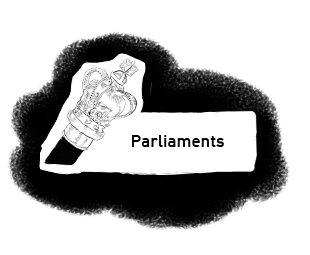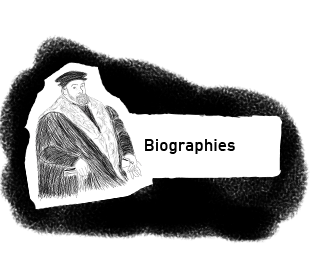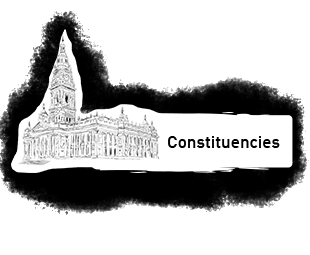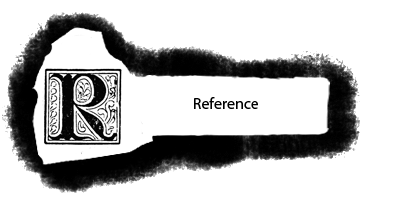
KS3 > Political Reform > For Reference > Glossary
1832 ‘Great’ Reform Act – Passed into law in 1832 by the Whig government. This Act changed which parts of the country sent MPs to Parliament. It removed ‘rotten boroughs’ and gave new industrial towns MPs. It also gave many middle class men the right to vote.
1867 Second Reform Act – Passed into law in 1867 by the Conservative government after much debate. This Act gave more people the right to vote, including some working-class men.
1872 Ballot Act – Passed into law in 1872 by the Liberal government. This ensured that all voting took place in secret, as we do now, so that people would not feel pressured to vote in a particular way (for example, by their landlords or bosses).
1883 Corrupt Practices Act – Passed into law in 1883 by the Liberal government. This Act helped stop corruption in elections by placing limits on what candidates could spend on election campaigning and making sure that they published what they had spent.
1884 Third Reform Act – Passed into law in 1884 by the Liberal government. This gave more working class people the vote by making the rules to qualify the same if you lived in the town or the country. However, it still depended on whether or not you owned property or how much rent you paid.
1885 Redistribution Act - Passed into law in 1885 by the Liberal government. This Act changed which communities had MPs, making sure that for the first time constituencies had roughly the same numbers of voters.
Act – another word for a law.
American Revolution – This took place between 1776 and 1785. Colonists in America rejected rule by Britain, largely because they had no say in how their colonies were taxed or governed. After a long war, the colonists won and formed the United States of America. In Britain, the Revolution helped to spread new political ideas, such as the belief that more people should have the right to vote. For more, see here (BBC website).
Amendment – A change made to a Parliamentary Bill. After a bill (a draft law) had been introduced in Parliament, MPs would debate it and suggest changes called ‘amendments’. MPs would be able to vote on whether or not to include these changes before they voted on the whole bill.
Attorney General – The lawyer who gives legal advice to the government. He usually attends cabinet meetings.
Autocratic – A system where power is held by just one person (for example, a king or dictator). Laws are often made without consideration of ordinary people.
Cabinet – the term for the leading government ministers, led by the Prime Minister.
Candidates – People standing for election to Parliament, before they become MPs.
Censorship – Government control over what can or cannot be published. This could be used against texts which promoted political reform.
Chartists – A group of campaigners for reform that benefited working class people (including Feargus O’Connor and Thomas Attwood). They became known as Chartists because of the People’s Charter which expressed their demands in ‘Six Points’.
Conservative – A new political party that emerged in the mid-19th Century from the old Tory party. They were more open to reform that the Tories, but wanted it to be moderate and take place slowly. They were not just supported by the very rich, but also by the middle and working classes.
Constituency - A constituency is the geographical area that an MP represents. Before 1832 the constituencies in Britain had often been created many years before, sometimes hundreds of years before and no longer had any bearing on the numbers of people living there or the importance of the area.
Corn Laws – A series of laws passed between 1815 and 1846. They imposed taxes on grain coming in from outside Britain. This meant that food prices were high, which was good for the large landowners who grew crops, but meant that basic foods such as bread were very expensive for the poor.
Corruption – Corruption is the practice of taking money in order to do a favour for the person who paid you. For example, before the 1883 Corrupt Practices Act candidates would pay voters ‘bribes’ in the form of money or even alcohol so they would vote for them.
 |
Disraeli by 'A.T.' 1868 © NPG D4426 |
Benjamin Disraeli (1804-1881) – Conservative party leader who was influential in forming the party and increasing its appeal to the middle and working classes. He was Prime Minister twice, once in 1868 and again in 1874-80. He was influential in the 1865-68 Parliament which passed the 1867 Reform Act. He was also famous for his battles with Liberal leader William Gladstone.
French Revolution – A series of popular uprisings in France, beginning in 1789, against the unpopular government of King Louis XVI. The revolutionaries were inspired by ideas about democracy and wanted a say in how they were governed. When the revolution started reforms were quite moderate, but they became more and more extreme, including the ‘terror’ in 1793-94 when thousands were killed. Louis and his family were executed, a republic was declared and France was soon at war with the rest of Europe, including Britain. The Revolution period ended in 1799 when Napoleon Bonaparte seized power. For more, see here (BBC website).
Charles, Earl Grey (1764-1845) – A wealthy landowner and leading Whig politician who was in favour of some political reform. He was Prime Minister between 1830 and 1834 and his government passed the 1832 ‘Great’ Reform Act, the New Poor Law and started the process of ending slavery in the British Empire.
William Gladstone (1808-1898) – A moderate Tory at the beginning of his career, he became leader of the Liberal party. He was Prime Minister four times, 1868-74, 1880-1885, 1886 and 1892-94 and was famous for his reforms, including those of the 1880-1885 Parliament. He famously had a long rivalry with Conservative Benjamin Disraeli.
Home Secretary – The cabinet minister in charge of internal matters, such as the police.
Hung, drawn and quartered – A gruesome punishment for men convicted of high treason. The traitor was hanged until they were nearly dead, then cut down and disembowelled whilst still alive. Finally, their limbs and head were cut off. It was first used in the 13th century.
Industrial Revolution – A change in the way that goods were made that occurred in Britain between the mid-18th century to the mid-19th century. New technologies, such as steam power, and methods, such as factories, meant that goods could be made in large numbers and much more cheaply. It had major economic and social consequences. People moved from working on the land to working in factories leading to the growth of large new towns. New ‘classes’ emerged, such as the middle classes who owned or managed factories, and the working classes who worked in them.
Liberal – A new political party that emerged in the mid-19th Century formed of Whigs, radicals and some Tories. This party was generally more in favour of business and manufacturing, and when in government introduced many different reforms. (In the 1980s, this party joined with another to become the Liberal Democrat party).
London Working Men's Association - A group formed by William Lovett and others to campaign for working class political rights. This group drafted the People's Charter. For more, see (British Library webpage).
William Lovett (1800-1877) - Chartist leader and secretary of the London Working Men's Association. He was responsible for drafting the People's Charter. For more, see (British Library webpage).
Mass-petitioning – A way of peacefully protesting for political reform. A statement of ideas or ‘petition’ was then signed by many people to show their agreement with it. The belief was that if thousands of people demonstrated to Parliament that they wanted things to change Parliament would have to listen to them. The most famous in this period were the Chartists.
Member of Parliament, MP - An MP is someone who is elected to Parlaiment and represents a constituency. The constituency is the geographical area that the MP acts on behalf of.
Militia – A local military force made up of volunteers. With no real police force during the early part of this period, the government often had to rely on volunteers to police protests or marches. Protests could turn violent (sometimes thanks to the militias as in ‘Peterloo’!). The militias were often made up of young, rich men who were opposed to reform. They were also often very badly trained and not easy to control.
‘Moral force’ and ‘Physical force’ Chartism – A way of describing a split between different types of Chartists. ‘Moral force’ Chartists supported peaceful methods of protest only. ‘Physical force’ Chartists argued that the movement should consider using violence to achieve their goals.
Napoleonic Wars – A series of wars between France (led by Napoleon Bonaparte) and other European countries, including Britain, between around 1803 and 1815. At the height of Napoleon’s power his empire covered most of Western Europe and parts of Poland, but he was eventually defeated at Waterloo in 1815. In Britain, fighting these wars had led to increased government control over the population and laws against those who wanted political reform.
The opposition – The party (or parties) in Parliament that had fewer MPs than the government party (or parties). Just like today, they often opposed the government’s policies and voted against them.
People’s Charter/ The ‘Six Points’ – the document which gave its name to the Chartists. Announced to the public in Glasgow in 1838, it put forward six demands for political reform, known as the ‘Six Points’. These were: the right to vote for all men over 21, you no longer had to own property to be an MP, annual elections to Parliament, equal numbers of voters in each constituency, pay for MPs, and vote by Secret Ballot. These united many working class people with different ideas behind one programme. The Chartists presented three large petitions to Parliament in order to achieve these demands. Although they were not immediately successful, by 1918 all but one of these demands had been met.
‘Peterloo’ – The name given to the events in St Peter’s Fields, Manchester on 16 August 1819. A peaceful, pro-reform rally was attended by 60,000-80,000 people, but the authorities panicked and sent the militia in to the crowds armed with swords. At least 11 people were killed and 400-600 injured. You can find out more in Lancashire.
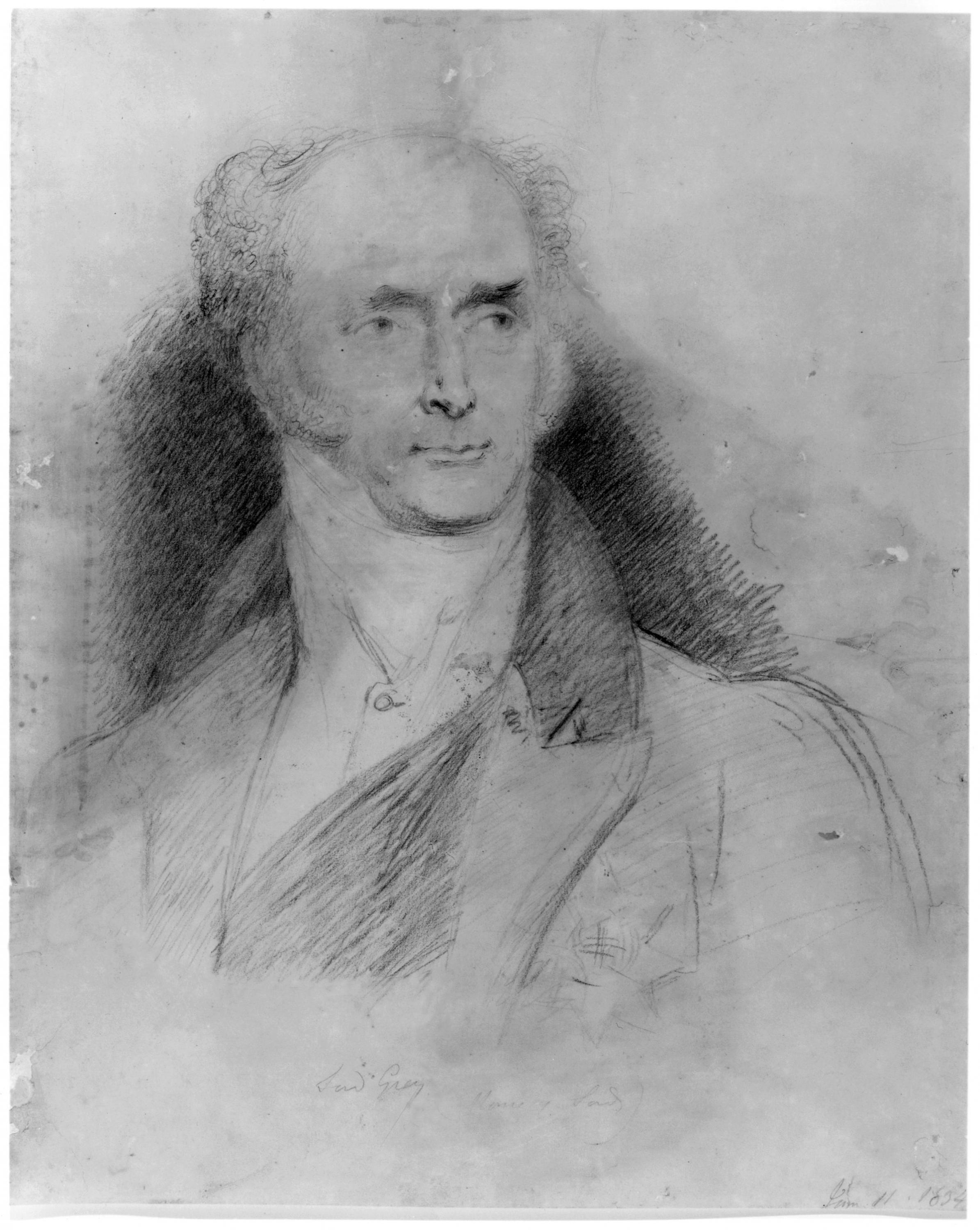 |
| Earl Grey, |
| by Benjamin Robert Haydon |
| © NPG 3784 |
Poor Law – Also known as the ‘New Poor Law’. In the nineteenth century, people who could not work because they were sick or because they could not find any work were cared for by local government. In 1834 Earl Grey’s government (see 1830-32 Parliament(s)) passed measures to try to make this system the same everywhere in the country and less expensive. The law said that the poor could only receive help in workhouses – which were hated by many because of the harsh conditions in them. This law was very unpopular amongst the working classes who had nowhere else to turn if they lost their jobs or could not work because of sickness or injury.
Radical/radicals – People or politicians who wanted major changes to the system of government, often very quickly. The term is used for people who argued for some very different changes, but they all wanted change to the system.
Rallies – A way of peacefully protesting for political reform. People would gather together in a meeting (also called a ‘rally’ or ‘march’) to listen to speakers who called for reform. The belief was that if thousands of people demonstrated to Parliament that they wanted things to change Parliament would have to listen to them.
Redistribution of seats – the term for changing where MPs represent in Parliament. In the early part of this period some towns or areas had few people living in them but still had an MP, whereas other large towns like Manchester or Birmingham had no MP. Seats were ‘redistributed’ by taking them from the places with few people living in them and given to the areas where more people lived.
Reform Bills/Reform Acts – A ‘Reform Bill’ is a draft law presented to Parliament for MPs and Lords to debate and vote on. Once MPs and Lords agreed to pass the bill it became a law, or an ‘Act’. The term ‘Reform Acts’ refers to those laws which changed the political system, such as who could vote.
Reform League - An organisation formed in 1865 with the aim of winning the vote for all men. There were over 400 branches that held regular large rallies (for example, see Marylebone, London). The League helped create pressure on Parlaiment to pass the 1867 Reform Act.
Represented/representation – The principle that MPs should look after the interests of those who voted for them. Many in this period felt that because they could not vote or if where they lived had no MP, then there was no one in Parliament who cared about how they lived or made laws to help them.
Repressive measures – Actions taken by governments against a particular group. In this period, these were often used against those who called for reform. They could include banning public meetings or marches, stopping people from printing newspapers or books which argued for reform, and arresting people who broke these rules.
Revolution – the violent overthrow of a governmental system, as in the French Revolution.
Rotten/pocket boroughs – These were towns or areas that had once been important, but no longer had many people living there. Because they used to be important they often had MPs. By the nineteenth century rich landowners could buy land in these areas and decide who became the MP. The most infamous was Old Sarum. Some rich landowners could control many MPs this way. People opposed this system as these MPs did not care about the interests of ordinary people, just the rich landowners who controlled their election.
Secret Ballot – A way of casting your vote in secret. This was to prevent people, such as landlords or bosses, from pressurising people to vote for a certain candidate. This is how we vote now, by marking a cross next to a candidate’s name on a ballot paper in a private booth.
Special Constables – Volunteers who are given the powers of policemen for a short period of time. They could be used at times when the government felt extra policemen were needed, such as before big political rallies.
Suffragettes/Suffragists – Campaigners to give women the right to vote. The ‘Suffragettes’ became the name for those who were happy to use violence to achieve the vote, such as Emmeline Pankhurst’s Women’s Social and Political Union. The ‘Suffragists’ favoured more peaceful protest, such as Millicent Fawcett’s National Union of Women’s Suffrage Societies. ‘Suffrage’ is another word for the right to vote.
Tories – At the beginning of this period political parties were not as organised as they are today, instead there were looser groups of MPs who tended to agree on similar ideas. The Tories were a group who were very protective of the Church of England, interested in the rights of large landowners, and did not generally support reform. The Tories were in power for much of the early part of the 19th century.
Transportation – A form of punishment for criminal activities. Prisoners were sent to colonies in Australia instead of a death sentence. Although they were often only sentenced to a few years in prison, many never returned to Britain.
Ultra-Tories – A group of Tories (including Sir Richard Vyvyan) who were so opposed to any reform they stopped supporting the Duke of Wellington over his plans to let Catholics vote (Catholics were not allowed to vote before 1829). In the end this led to Earl Grey coming to power and passing the 1832 ‘Great’ Reform Act!
Duke of Wellington, 1845 Henry Pierce Bone © NPG |
Welfare state – The term used to describe a government system that looks after the economic and social well-being of its people. Measures such as unemployment insurance or healthcare are paid for by taxes. This means that everyone can receive them, whether they are rich or poor. For example in modern Britain the NHS is paid for by taxes so everyone can use it for free when they need to. In the early nineteenth century this system did not exist.
Arthur Wellesley, Duke of Wellington (1769-1852) – A brilliant military commander during the Napoleonic Wars. He led British and Allied armies against Napoleon and won a famous victory at Waterloo in 1815. Wellington was also a Tory politician who opposed many reforms. He was Prime Minister between 1828-1830 and later in 1834 for a short time.
Whigs - At the beginning of this period political parties were not as organised as they are today, instead there were looser groups of MPs who tended to agree on similar ideas. The Whigs were in favour of moderate reform, believing that slow reforms would prevent a revolution in Britain. They were also more likely to be involved in the new manufacturing industries. They came to power in 1830 and passed the 1832 Reform Act.
ENTER NOW!
WIN OUR ANNUAL COMPETITION!
The History of Parliament runs annual competitions in the spring and summer for 11-14 and 16-18 year olds. For information this year’s competition, and how you can enter,
please click here.



